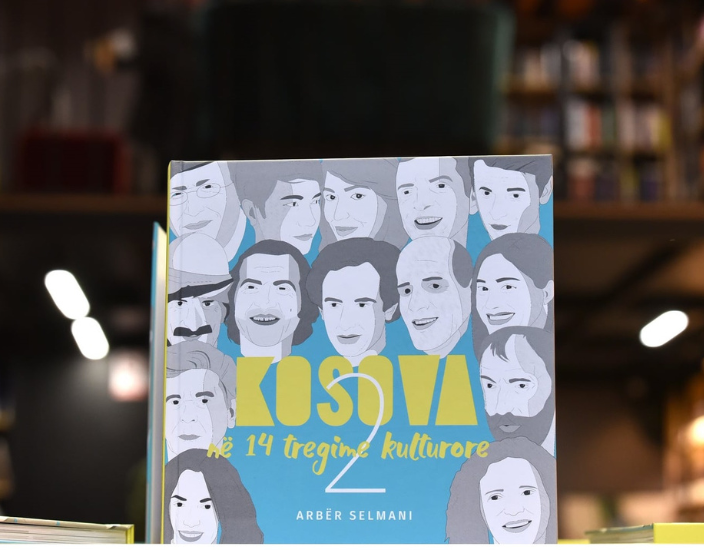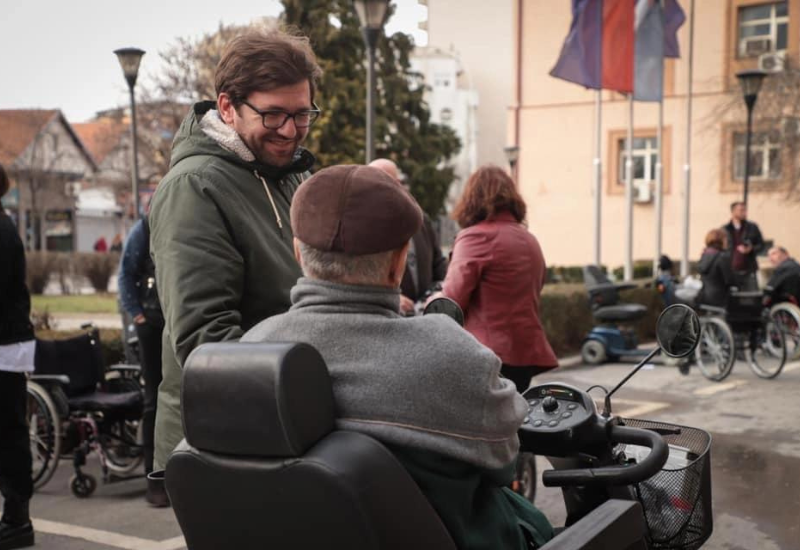In every community, prioritizing support for individuals with disabilities is deeply meaningful since it reflects a commitment to inclusivity and empowerment. This commitment goes beyond a moral duty; it serves as a foundational element of a compassionate society. By actively contributing for their well-being, we support improvement of their life and cultivating a community that values fairness and equal opportunity for all.
Recognizing and addressing the unique challenges faced by individuals with disabilities is a testament to our shared commitment to diversity, ensuring that every member of our community is valued and empowered to thrive.
In Kosovo, this commitment has manifested in a series of impactful initiatives spanning from 2018 to 2022. During this five-year period, only through the Kosova Dhuron Platform, Kosovo witnessed 3,246 recorded charitable actions dedicated to supporting people with disabilities, amounting to a generous contribution of 17,184,157 euros. These actions were made possible by diverse donors, including Civil Society Organizations (CSOs), corporate entities, mass individuals, and individuals. Short-term support dominated during the last years.
2022 contributions
Donor contribution: In 2022, people with disabilities were mostly supported by CSOs accounting for 45.2% of all charitable instances directed to that cause. The corporate sector followed with 26.2% of instances, with mass individuals contributing at 21.4% of instances. Interestingly, while the corporate sector had a higher frequency of giving, they only accounted for 0.6% of the total monetary value that was donated - meaning that they were active in charitable actions but with less money invested in comparison to, let’s say, mass individuals, who contributed with 59.7% of the total monetary value.
Recipient demographic: The analysis of the recipients of these donations in 2022 reveals that CSOs played a pivotal role, engaging in 83.3% of charitable instances. Individual or family recipients followed at 11.9% of instances, and institutions and local/national government entities both received 2.4% each.
Regarding the donated amount, CSOs received 61.3%, with local/national government entities following at 30.8%, while individual or family recipients received 8.0%.
Long-Term vs. Short-Term Support
The analysis of long-term versus short-term support indicates a shift in focus from 2018 to 2022.
Short-term support, including humanitarian aid, individual housing, medical treatments, etc - dominated both in frequency (64.3%) and monetary value (31.7%) in 2022. This shift reflects the urgency of addressing immediate needs, aligning with the evolving support landscape for people with disabilities. In fact, only in 2018 and 2019 was long-term support more dominant than short-term (when more than half of all giving instances were invested in long-term support).
A potential reason for the increased short-term support since 2020 can be the higher demand for urgent actions, particularly humanitarian support. This shift underscores the dynamic nature of philanthropy, adapting to address pressing issues faced by individuals with disabilities.
Inspirational Stories of Giving
Below, a collection of inspirational stories of giving is unveiled, with narratives that embody the strength of combined goodwill, highlighting a steadfast dedication to constructing a society that is both supportive and inclusive.
- In 2021, the “Golden Eagle” Foundation, financed by “Frutex” company, started the construction of a company, a 10 million euros project, for the production of paper/packaging and other series of products. The main goal of the project is employing people with disabilities to encourage social inclusion. This factory was inaugurated last year, in 2023, known as “Freesia Paper Factory”.
- On the International Day of Wheelchair Users in 2020, the mayor of Prishtina Shpend Ahmeti, in collaboration with HANDIKOS and HANDICAP Kosova, distributed over 500 assistive devices (wheelchairs and electric cars) for people with disabilities. The devices, valued at over 400,000 euros, were donated by the diaspora association “Fehmi Agani” in Arendal, Norway.
- By the end of 2021, journalist and poet Arbër Selmani fulfilled his promise by donating 2,318 euros from the sale of his book “Kosovo in 14 cultural stories - 2” to the "Autism" association - Pristina. His aim was to contribute to the well-being of children with autism in Kosovo.

The cover of the book “Kosovo in 14 Cultural Stories - 2”
Photo source: Official “Facebook” account of Arbër Selmani
- In 2022, the “Jetimat e Ballkanit” (Balkan Orphans) Association distributed diverse donations to centers like Handikos in Suhareka, Handikos in Fushë Kosova, Handikos in Drenas, “Dardanët” Club, Prishtina – Vjollca Hoxha and “Heroinat” (Heroines) Association in Prishtina, as well as to cases having family members with disabilities. The donations included wheelchairs, electric wheelchairs, crutches, beds, cleaning seats, electric cars, physiotherapy equipment, special strollers for children, and different clothing for all ages.
- Another support to the “Down Syndrome Kosova” Association, provided in 2020, comes from Banka Kombëtare Tregtare Kosovë (BKT Kosova). Considering the economic difficulties caused by the COVID-19 pandemic, BKT Kosova has responded to the call for aid of the Association “Down Syndrome Kosova” by donating therapeutic services for a period of 12 months for a child diagnosed with this syndrome. The value of the donation was 1,920 euros.
- In 2019, the lives of Sh.P. and his wife, both contending with physical disabilities and health challenges, underwent a transformative change. Through the efforts of the “Jetimat e Ballkanit” (Balkan Orphans) Association, fuelled by donations from various compassionate contributors, a new home emerged for this family. Notably, the Municipality of Lipjan played a crucial role, contributing 5.000 euros towards this endeavor.
Conclusion
The philanthropic landscape in Kosovo showcases a diverse group of donors actively contributing to the well-being of individuals with disabilities. The generosity extends beyond borders, underscoring the philanthropy's significant role in Kosovo. These stories exemplify the impact of collective efforts in creating a more inclusive and supportive society. There are many other stories, highlighting particularly the donations for healthcare, when certain public or private people ask for quick money to be transferred to their bank accounts, with the aim to help people with disabilities who have urgent needs for medical treatment within or outside the country.
Want to know more about philanthropy and donations in Kosovo? Check out our report on the state of philanthropy - Giving Kosovo 2022.
This article is made possible by the generous support of the American people through the United States Agency for International Development (USAID). The contents are the responsibility of Catalyst Balkans and do not necessarily reflect the views of USAID or the United States Government.
The Citizen Engagement Activity in Kosovo is a five-year initiative implemented by Kosovar Civil Society Foundation (KCSF) in partnership with the United States Agency for International Development (USAID).
Cover photo: Distribution of assistive devices for people with disabilities
Photo source: Official “Facebook” account of former Mayor of Prishtina Municipality, Shpend Ahmeti

